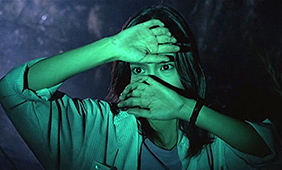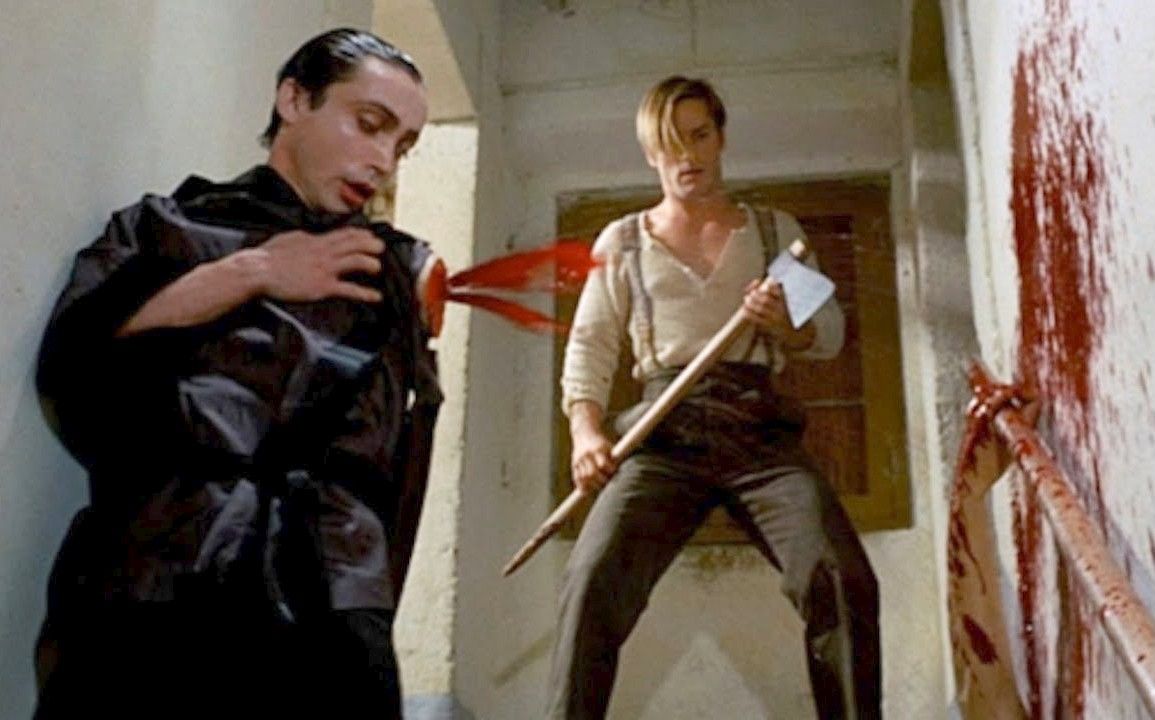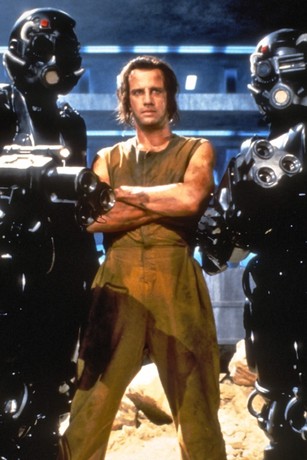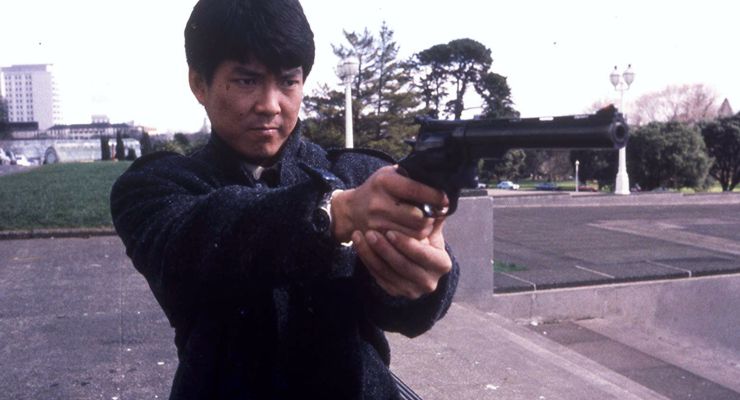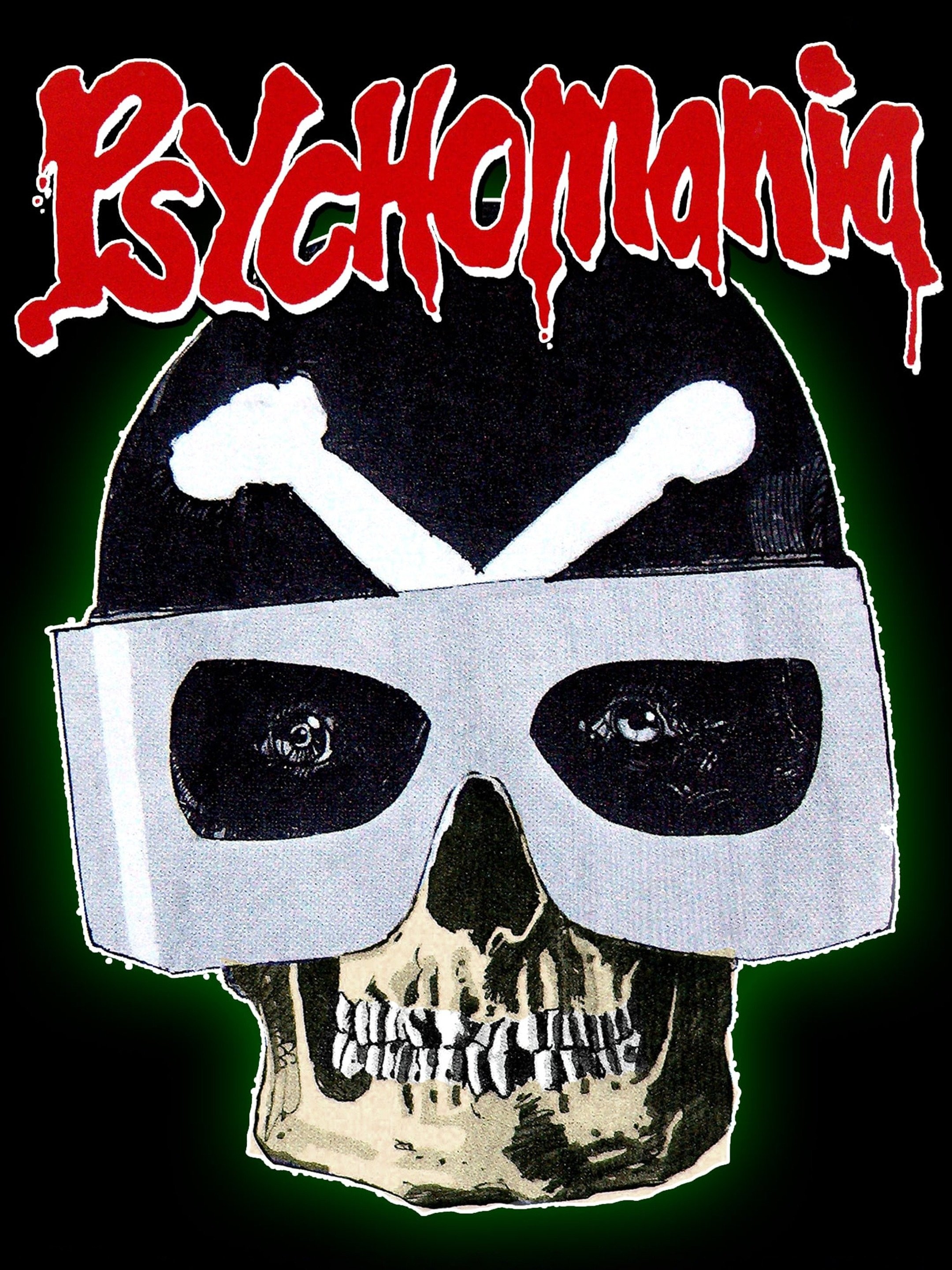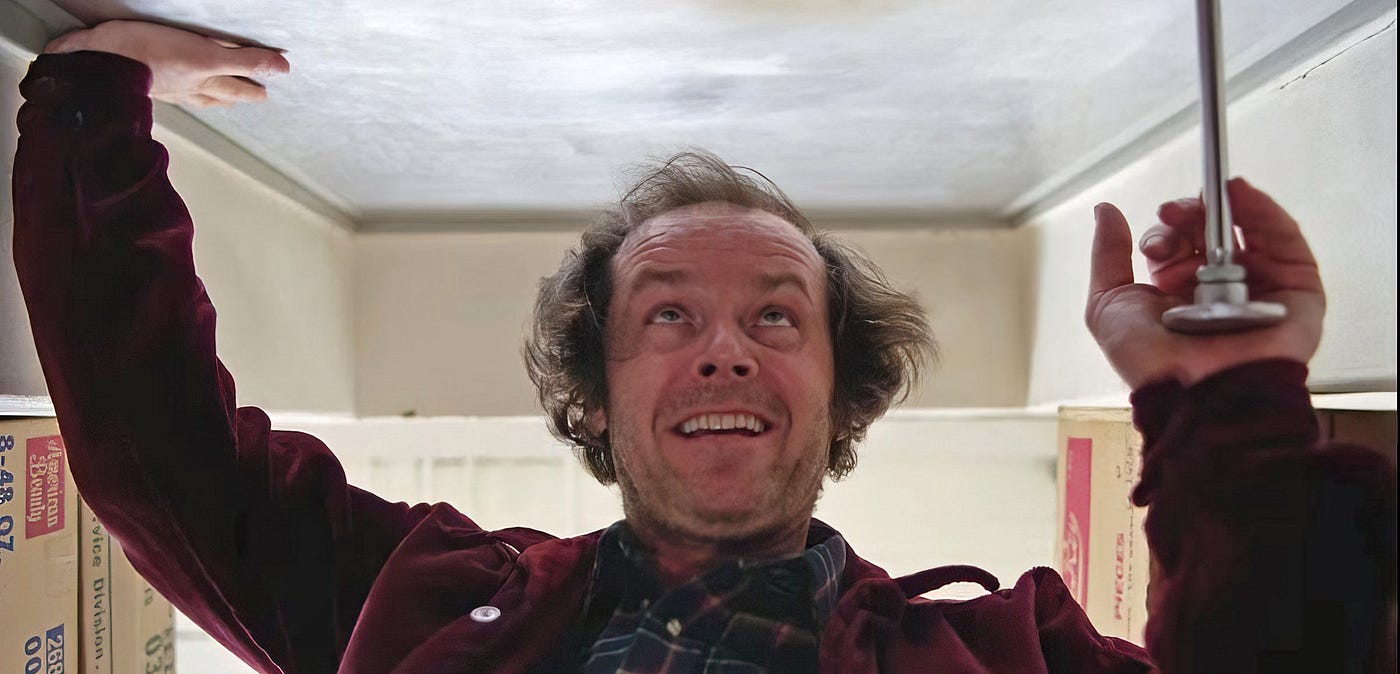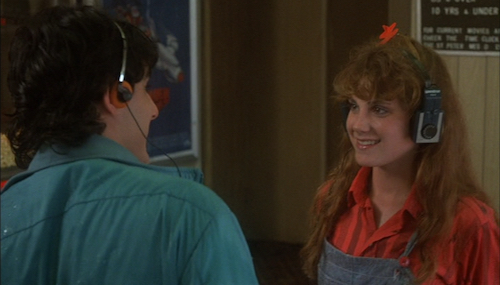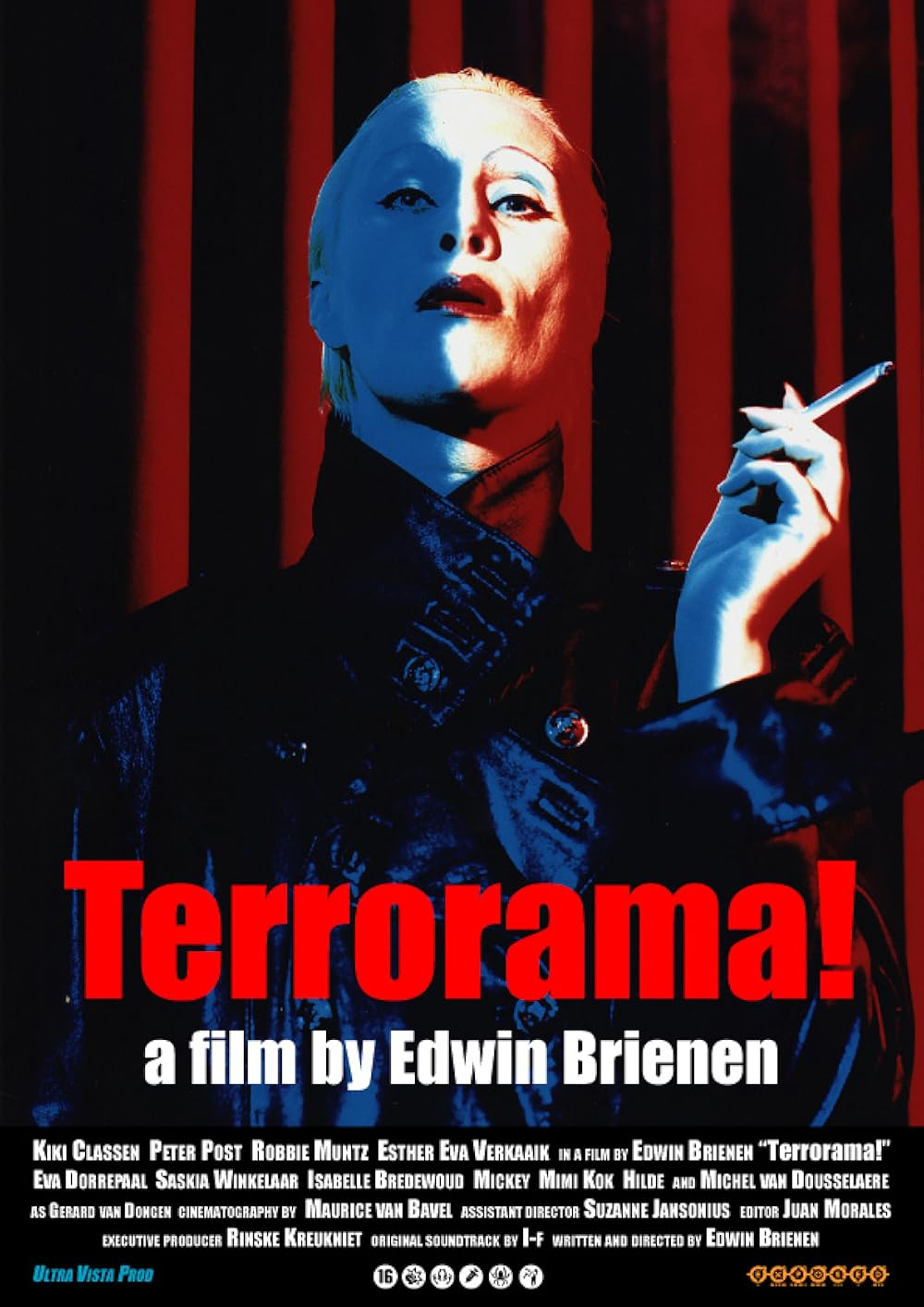Our upcoming episode features Gerald Thomas's Carry On Screaming! (1966).
We are alive. We are currently editing the episode. You have to listen to hear what’s next…
Current film obsessions:
Parker: I’ll be real with yall, I’ve been burnt out in terms of movie watching this summer. Most of the excitement was Junesploitation, and even then I ran late.
Regardless, here’s a few films I’ve really enjoyed (unrelated to the pod):
Eddington (2025): Ari Aster’s new film is wildly uncomfortable (and I say this as someone who began having panic attacks 20 minutes into Beau is Afraid). You can argue it’s too soon or too centrist - but 2020 was exactly like this, and all the more frightening because of it. Not my favorite of his filmography, but still very good - a testament to Aster’s keen eye.Hell Has No Boundary (1982): To be covered by Unsung Horrors for Shawgust! What a blast of a horror film. Featuring possession, child murder, and evil toilet paper, it has everything you would want out of any Hong Kong horror film. Needless to say, I’m excited to hear what Erica and Lance have to say about this.
The Whip And The Body (1963): Gothic S&M Bava starring Christopher Lee? Sign me up! Bava’s masterful pacing is growing on me as i watch more of his films (is the Generation Z attention span joke appropriate here?), and the lighting seen throughout his films is eye candy that continues to sweeten with time.
Ryan: Ossie Davis in The Sheriff (1971), Sally Hawkins in The Lost King (2022), Steve Coogan in A Cock and Bull Story (2005), and Jake West’s documentary Mancunian Man: The Legendary Life of Cliff Twemlow (2023) (available on Tubi and included in Severin’s new boxset).
Our friend Matt insisted I attend F1; even as a fan of the sport I’m usually skeptical about films relating to racing. Despite that, I was happily blown away with the cinematography and a captivating storyline. F1 is sponsored by IWC watchmakers of the classic model Ingenieur and released a Pilot’s Watch Chronograph (starting at $6,800) in tandem with the film. The past few months have had moments of tragedy and triumph that I wouldn’t wish for anyone to experience (grief/loss), but on the bright side of things my family has grown with the addition of a new furry member and after being on a waitlist for 2 years, I received the call to take ownership of what nerds affectionately refer to as a “grail”-watch. Objects are of little importance compared to our friends/family/pets; the reward of the living is to spoil them with love, but like unwrapping a new blu-ray or finding a treasure in the wild, a shiny new thing is a shiny new thing.Current music obsessions:
Parker: I couldn’t tell you about the music I’ve been listening to - it’s really just more of the same. Putting on albums while studying really does open my ears up to new things. Keep slaying to the Boulet Brothers, Depeche Mode, and IDKhow, y’all.
Ryan:Fred Schneider – Just Fred (1996)
Various Artists - Unlock Your Mind with Morning Glory – Compiled by James Endeacott (2025)
Sandwell District – Feed Forward (2010)
Efdemin – Carry On Pretend We’re Not In The Room (2008)
Thomas Fehlmann – Los Lagos (2018)
Matrixxman – Homesick (2015)
Dark Room Notes – Dead Start Program (2011)
Adelbert von Deyen – Inventions (1983)
Q&A
1. Film can be a vehicle for discovery of our emotions as human beings. Name a film and character that has had an impact on how you understand yourself.
Parker: Mike Waters in My Own Private Idaho (1991). This film is my pulse check. I relate to far too many aspects of it to get into here, but the hardships he faces before, during, and presumably after the film are all too real to me. His childhood is rough. His “profession” is unstable and is not particularly favorable (the definition of a survival job). The entire film he searches for something he yearns for deeply, and instead of finding it (or so much as receiving closure as to where she is), his best friend/travel partner Scott runs off with a girl he meets, leaving Mike in the dust. Something in his journey is always missing, the perfection definition of a lost character. He’s always so close to something that can fill the hole in his heart, be it Scott (implied to be unrequited love at its most painful), the clues to his mother’s location, or the father figure he has acquired in the form of Pigeon Bob. Ultimately, all of these are dead ends, and Mike is left with his community of hustlers. His fate is unknown and endlessly theorized upon - to me, there is no “good ending” out of anything you could come up with. You don’t know where his journey goes, you just know that it continues as the car disappears down the road, into the distance. That’s the point, and to me, that’s all the reassurance I need that it’s ok to be lost in life.Ryan: Amadeus (1984) beholds the character of Salieri (played to perfection by F. Murray Abraham), where he shows the frustrations of our existence when we’ve been near to or observed talent that is without flaws and approaches perfection. In Salieri I’ve often found comfort in the character who not only reports out his annoyance and jealousy but exquisitely takes the audience with him into misery. Should his petulance and conniving be relatable? It isn’t excusable, but his torment is wonderful and every moment he’s upstaged by the virtuoso composer Mozart is an opportunity to take pleasure in the specificity in which Salieri’s revenge is plotted. Consumed by his anger, obsession, and annoyance, his final laughter of the absurdity to which he fell victim to his own doing is in one part a learning lesson and in another an acceptance.
2. What films/roles explore aspects of your personality which you'd wish to improve upon?
Parker: Herbert West in Re-Animator (1985). This is the film that got me into “B-movies” and ultimately changed my life - you all know this. Taking a look beyond the Yaoi that permeates the fandom, West is a man who scoffs at the boundaries of medicine and has no issue crossing moral lines to complete his goals. While comically portrayed in the film, these infractions would be hard to watch in other settings. Being the inquiring mind I am, his blunt and knowledge hungry nature is attractive, but his actions are a stark warning to leave some things to the imagination. It’s frightening to think someone in the field could disrespect any cadaver in the way he does, yet there are real cases of professionals doing so all over the world. His lack of social skills is also frighteningly relatable - I guess I know where I’d be if I didn’t take classes to learn how to interact with people.
Ryan: Best In Show (2000) by Christopher Guest (starring his usual troupe) is the perfect combination of every stereotype of dog owners into one film. The film contains a bevy of cliché owners and handlers within the show scene. Individually each has something we see in ourselves (positive or negative) before the band-aid is ripped off by Guest’s portrayals.Most of the time it’d be preferable to be most like Harlan Pepper with his bloodhound dog Hubert, giving him all the love while pursuing a side-hustle of puppet/ventriloquist gigs at the local community center, humor and heart on his side. He’s blindly optimistic and naïve, two traits worth at times striving toward in a chaotic landscape of the world. The anxious character of Hamilton Swan and Meg Swan (Michael Hitchcock and Parker Posey, respectively) unfortunately hit much closer to my personality type, and walking through a pet store analyzing dog toys for their build quality or potential as a new favorite for my dogs is a real thing. The sequence where the Busy-Bee toy is missing and can’t be replaced by a toy bear in a bee suit is completely unacceptable for the dog! The character of Scott Donlan currently is where I’m at for checking off Best in Show-isms that make up my real life; Scott made his own custom leather pants and showed them off to Eugene Levy (Gerry Fleck), appreciating how difficult it must’ve been to design them.
3. Colorful cinematography is the visual brain food that compels us for more, what films give you this rush of ocular indulgence?
Parker: Allow me to be basic: 2001: A Space Odyssey (1966). Seriously, why else would you watch this? To feel small? (half joking…)
Other personal favorites with yummy visuals:
Suspiria (1977) - I don’t think I have the deep connection many have to this film, however it never fails to be a comfort film in my darkest hours. Shapes and colors, y’all.Fantasia (1940) - old Disney is some of the best Disney, and the combination of beautiful classical music with some of the finest animation ever really seals the deal for me here (particularly the opening sequence featuring Bach’s Toccata and Fugue in D minor). You don’t always have to have characters to create an engaging piece of art.
The Holy Mountain (1973)- this feels obligatory.
All of Ralph Bakshi’s work could be here, but I particularly love Wizards (1977). Yes, I understand half of the reason his films use live action are budgetary, but I think that enhances their quirky and often very real stories (big boobed fairies aside).
Ryan: Coralie Fargeat’s crushingly bleak film Revenge (2017) is a tantalizing use of desert landscapes, rewarding the eyes and making the plot easier to digest. Fargeat is able to weave the discomfort of the subject matter with aerial filming of sunrise/sunsets. The viewer is subsequently immersed into the sparse landscape of mid-day desert when tensions are high.
In contrast, Providence (1977), directed by Alain Resnais and starring Dirk Bogarde, David Warner, Ellen Burstyn, and John Gielgud is an absolute vacation for the comforting countryside mansion drama. If Revenge is the famine, Providence is a feast for viewers who crave scenes often filled with rare antiques and artwork abound. All of these beautiful shots are courtesy of Ricardo Aronovich, known for notable titles like Murmur of the Heart (1971), Christmas Evil (1980), Klimt (2006), and Hanna K. (1983).
4. Physical comedy is generally the easiest type of comedy to digest. What film(s) contains physical comedic elements that bring the biggest smiles and laughter?
Parker: I CAN TALK ABOUT JACKIE CHAN I CAN TALK ABOUT JACKIE CHAN I CAN TALK ABOUT JACKIE CHAN I CAN TALK ABOUT JACKIE CHA- spasms out
Out of his filmography, I’d say his “funniest”/most enjoyable would be Rumble in the Bronx (1995), City Hunter (1993), and Wheels on Meals (1986). Rumble in the Bronx is my personal favorite of his entire filmography (I see it as a melting pot of the best elements of his films), and while I think there are better films than the latter two (see: Snake in the Eagle’s Shadow (1978), Police Story (1985), and Crime Story (1993)), all three had me smiling from ear to ear the entire run time.
Outside of him? My favorite physical comedy tends to come with bloodshed, so Riki Oh: The Story of Ricky (1991), Ebola Syndrome (1996), and Evil Dead II (1987) rank very highly.
Ryan: I’ve found an absurd enjoyment in the Tyler Perry's Madea franchise for exactly this reason; we’re not talking Chevy Chase level SNL pratfalls, but there is a sweet spot of physical humor and timing that Perry and his troupe are able to bring to these films. Unexpected, uncontrollable laughter is something that doesn’t happen nearly as often as I wish it would, usually easier to achieve with friends, not always as easy to replicate by way of film. My solution? Say Hellurrr to a Madea film (or at the very least the Halloween ones during spooky season)!
5. If a film gets under your skin, it must be doing something! Explain a film or character that drives your blood to boil (cannot include behind the scenes fuckery - sorry Argento and Jodorowsky).
Parker: I think there’s a lot of stuff that has either surprised me, shocked me, or simply pissed me off in terms of content or plot, but never really made me think past the surface level of what’s going on (Paradise Framed (1995), Gestapo’s Last Orgy (1977), Eating Raoul (1982)). Even then, I still have several that truly made me angry for a variety of reasons.
After nearly two years of first seeing it, making several people I know watch it, and even doing an entire podcast and article on it, United Trash (1996) remains one of a few films that has physically triggered me. I don’t feel like I need to elaborate too much. Even as I continue to find more of his filmography, Christoph Schlingensief never fails to anger me as he beats the societal norms off of our society and skins all sides of the political spectrum alive. I maintain that he would have a field day in our current climate.
To me, Blood For Dracula (1974) is a near-perfect film; what keeps it from being perfect is the inclusion of my least favorite character ever in Mario Balato. Prior to my most recent rewatch, I went through some of the special features included on the Severin Blu-Ray, and found the interview with Paul Morrissey incredibly insightful as to the film’s initially confusing tone. Viewing the world as pessimistic and shitty, where there are no clear good or evil characters is crucial to not getting overly angry that the Marxist “hero” to defeat Dracula is also a rapist. Yet that feeling is inevitable, as while you want to sympathize with the surrounding characters, they are all spoiled and stuck up. Why is this movie such a good class commentary?Expose/House on Straw Hill/Trauma (1976)i s a bizarre combination of sexual desire, rape, and violence that cannot pick a particular lens to see itself through, making it an increasingly infuriating watch regardless of who you root for. As with United Trash, I’ve written about this before and would like to further expand upon it eventually.
TLDR: Udo, I love you, but your films frequently piss me off.
Ryan: Paul Dano as Paul Sunday in Paul Thomas Anderson’s There Will Be Blood (2007); never has an actor been so abhorrent and vile as Dano in this role. The obnoxious hateful character is so affecting it took months to mentally separate Dano with the role. In the words of Corky St. Clair in Waiting For Guffman, “Well then, I just HATE you, and I hate your ass FACE!”
Parker & Ryan


